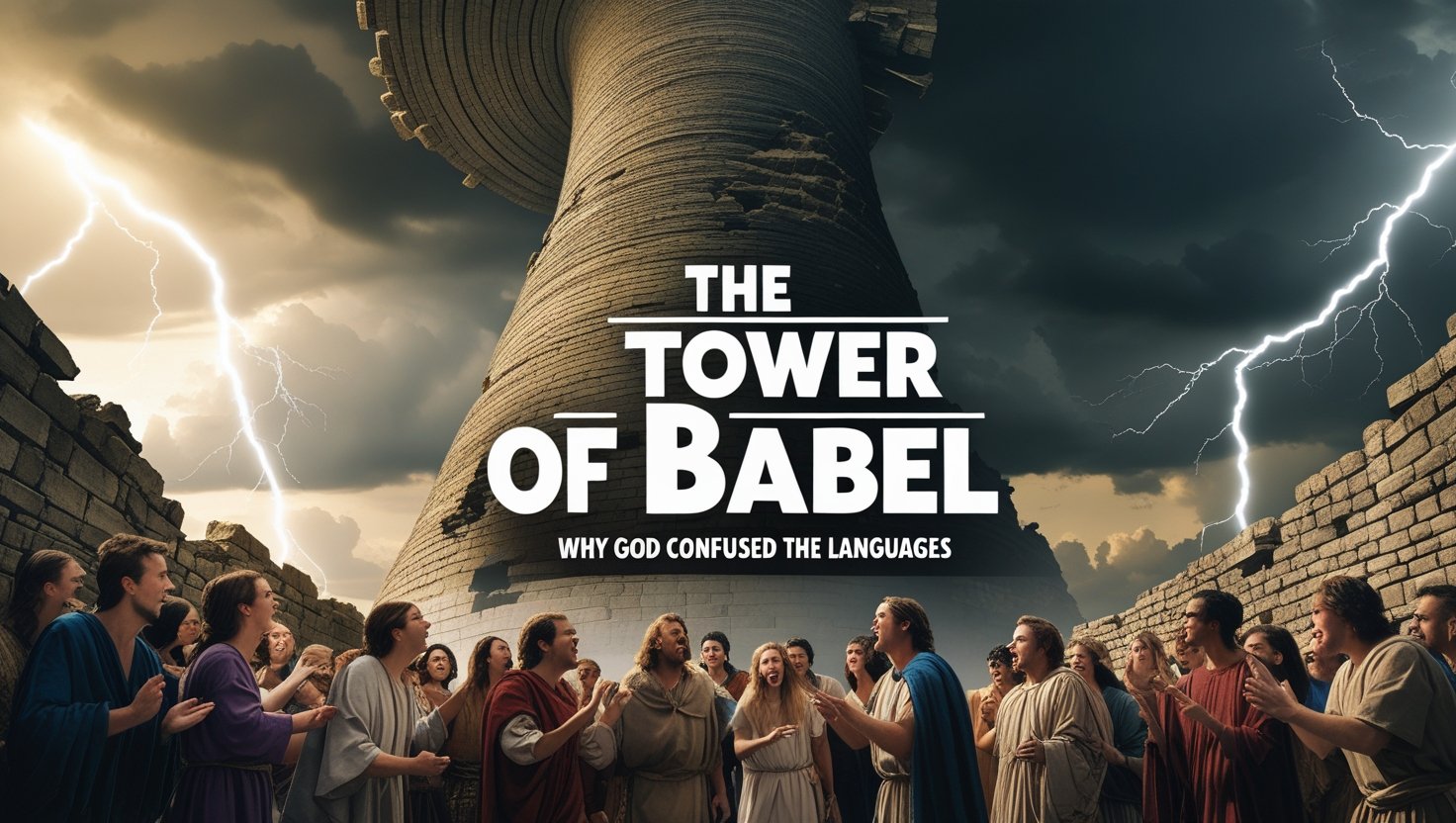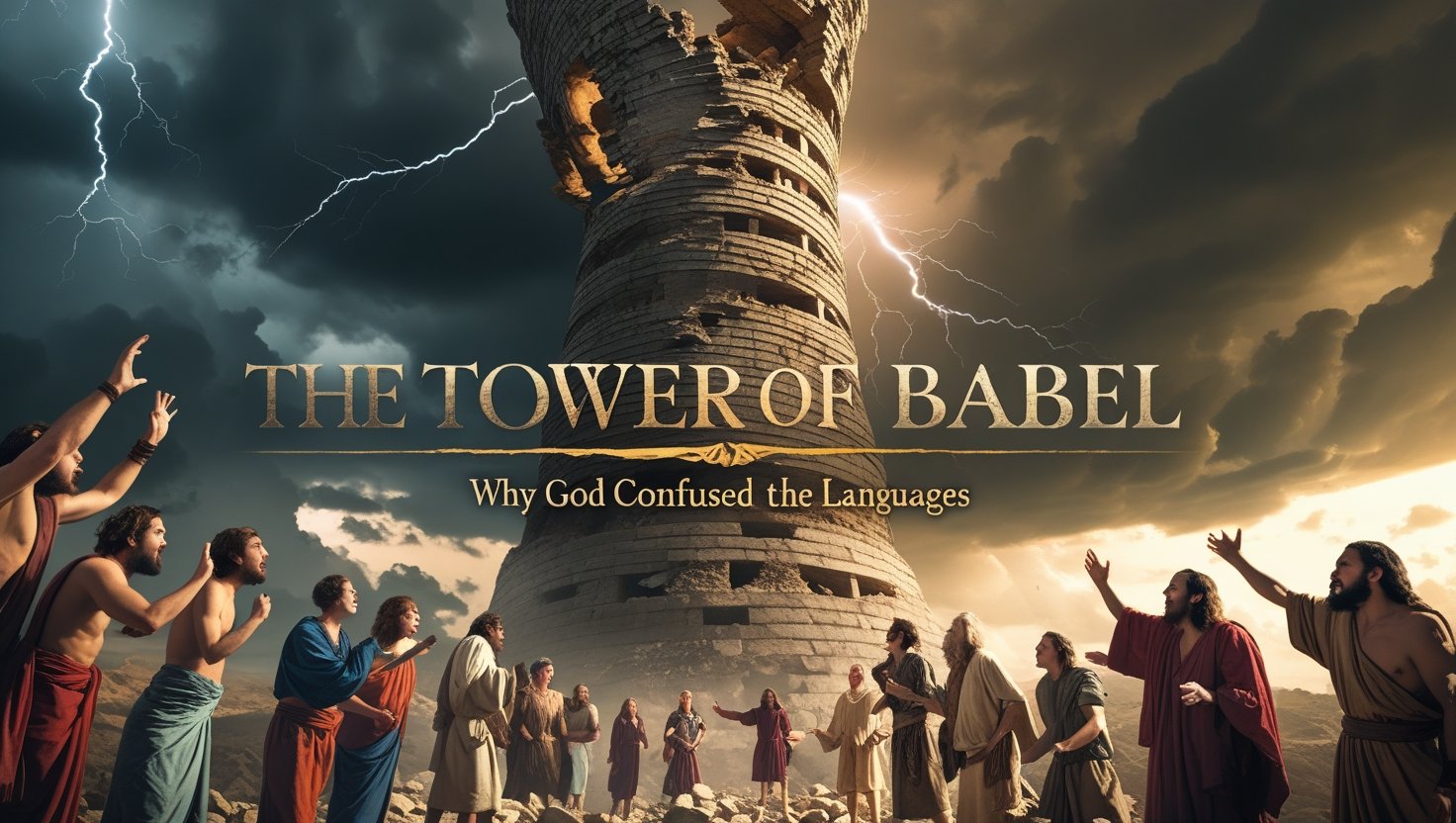Explore the Tower of Babel in the Bible—delve into humanity’s ambition, divine intervention, and the origins of linguistic diversity.
Unveiling the Mystery: What Happened at the Tower of Babel in the Bible?
The narrative of the Tower of Babel has intrigued and puzzled readers for generations. Found nestled within the Book of Genesis, this ancient story speaks to deeper truths about humanity’s ambition, linguistic diversity, and divine intervention. Whether you’re familiar with the tale or seeking a fresh perspective, you’ll find that the Tower of Babel offers much more than meets the eye. Let’s embark on this journey together to explore what truly happened at the Tower of Babel and uncover the nuances that make this story eternally relevant.
Introduction
Imagine a bustling construction site, echoing with the sounds of hammers and the hum of human voices, all speaking different languages. At the heart of this scene is the Tower of Babel—a structure designed to touch the heavens. But its story goes beyond bricks and mortar; it is a tale of human aspiration and divine reaction. So, what was the intention behind this towering project, and why did it come crumbling down? In this exploration, we’ll delve into the mysteries embedded in this ancient narrative and its significance that resonates even today.
📖 Key Verse or Passage
One of the most pivotal verses in this narrative is located in Genesis. It captures the essence of the story and sets the tone for what unfolds:
“Then they said, ‘Come, let us build ourselves a city, with a tower that reaches to the heavens, so that we may make a name for ourselves; otherwise we will be scattered over the face of the whole earth’” — Genesis 11:4.
Related posts: The Real Reason God Had to Destroy the Tower of Babel
The Ambition Behind the Tower
Ambition and Unity
The story of the Tower of Babel opens with humanity united, speaking a single language—a time when communication flowed seamlessly. This unity spurred them to harness their collective ambition to build a magnificent city that would prevent them from being scattered across the earth. Their goal was not merely architectural; it was symbolic. The tower was meant to be a testament to human achievement, a way to “make a name” for themselves, Genesis 11:4.
The Symbolism of the Tower
To comprehend the ambition behind the Tower of Babel, we must look beyond its physical structure. The tower symbolizes humankind’s perennial desire to reach new heights, to go beyond the limits that are often self-imposed or dictated by nature. This audacity to reach the heavens can be seen as both lofty and presumptuous. Was it merely about creating a landmark, or did it signify a deeper struggle for significance and control?

Divine Intervention
Diversification of Languages
As the tower began to rise, so did concerns from the divine sphere. According to the biblical narrative, God perceived their unified language and intent to dominate as a potential threat. As a result, He decided to “come down” to disrupt their plans by confounding their speech, introducing a multitude of languages Genesis 11:7. This divine intervention wasn’t merely an act of discipline; it was a necessary measure to introduce diversity into human life.
Scattering of Nations
The scattering of people across the earth was not just a punishment; it was a method to fulfill a deeper divine plan. Initially, humanity was instructed to “fill the earth” Genesis 1:28, but their actions at Babel indicated a resistance to this mandate. By distributing languages, God ensured that people would naturally disperse across different terrains, cultures would evolve, and the inherent richness in diversity would flourish.
The Legacy of Babel
Linguistic Diversity
The diversity of languages today can trace its metaphorical roots back to the Tower of Babel. This biblical account may not explain the intricate historical and evolutionary processes behind language formation, but it poetically captures the essence of a world where communication barriers both challenge and enrich human interaction.
A Cautionary Tale
The Tower of Babel remains a cautionary tale against unbridled ambition and the hubris of mankind. It reminds us that while innovation and aspiration are undeniably important, they mustn’t overshadow our humility or the need for collective well-being.
Modern Reflections
As we look around our world today, the shadow of Babel looms large. Our technological towers—the towering skyscrapers, the ever-reaching possibilities of science and technology—reflect our age-old ambitions. Yet, the story prompts a reflection: With great achievement comes responsibility. Are we using our collective knowledge and resources to unite or divide, to heal or harm?
Conclusion
The story of the Tower of Babel is more than an ancient tale; it is a timeless reflection of human nature and its complexities. It poses still relevant questions: Do our ambitions serve a greater good, or do they merely serve ourselves? How do we balance unity with diversity? In exploring these questions, we gain insights into the biblical narrative, our lives, and the world we inhabit.

🔍 Explore More Bible Insights:
✅ 1. The Role of Eliab – David’s Brother in His Journey to Facing Goliath
Tone: Relational, reflective, character-focused
🔹 “Family Tensions and God’s Purpose – Discover the Connection”
Read it here.»
✅ 2. What Jeremiah 29:11 Means for Us Today
Tone: Hopeful, encouraging, life application
🔹 “God’s Plans Still Stand – Find Your Hope Here”
Read it here.»
✅ 3. The Wise and Foolish Builders – A Strong Foundation in Faith (Matthew 7:24-27)
Tone: Foundational, practical, discipleship
🔹 “Build Your Life on the Rock – Keep Learning”
Read it here.»
✅ 4. The Roman Centurion at the Cross – A Moment of Revelation
Tone: Awe-inspiring, redemptive, gospel-centered
🔹 “From Witness to Believer – Read His Revelation”
Read it here.»
As a ClickBank Affiliate, I earn from qualifying purchases.
Acknowledgment: All Bible verses referenced in this article were accessed via Bible Gateway (or Bible Hub).
“Want to explore more? Check out our latest post on Why Jesus? and discover the life-changing truth of the Gospel!”








